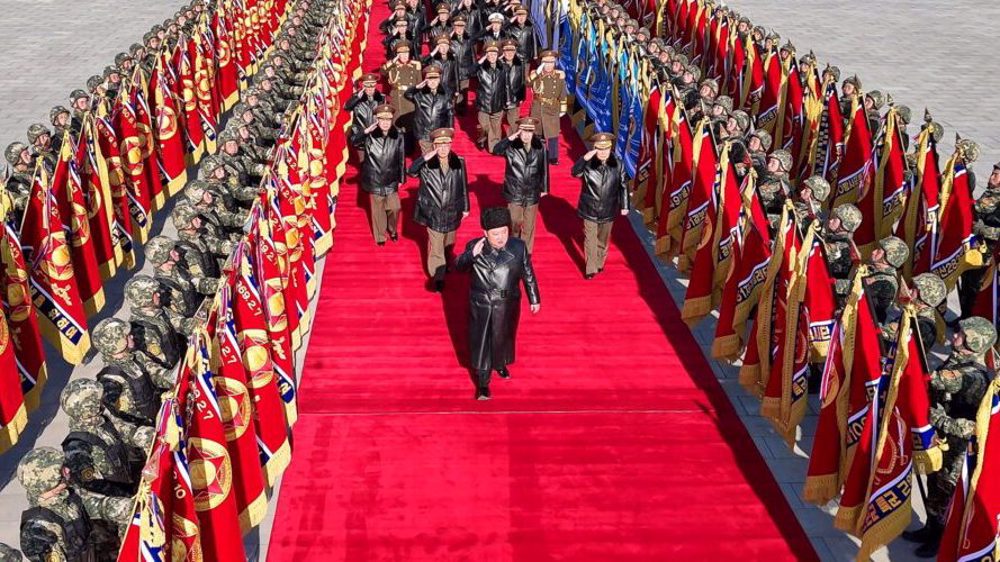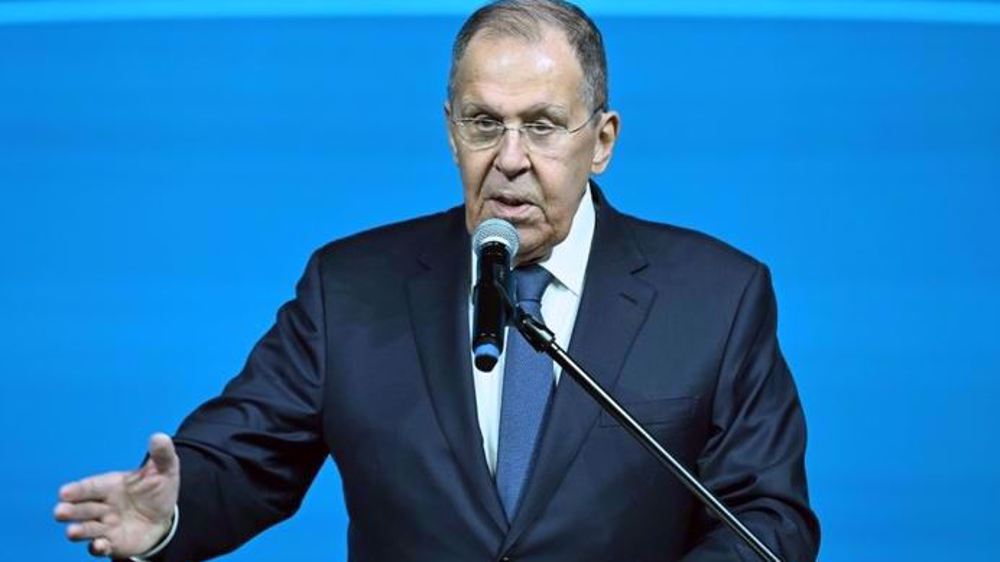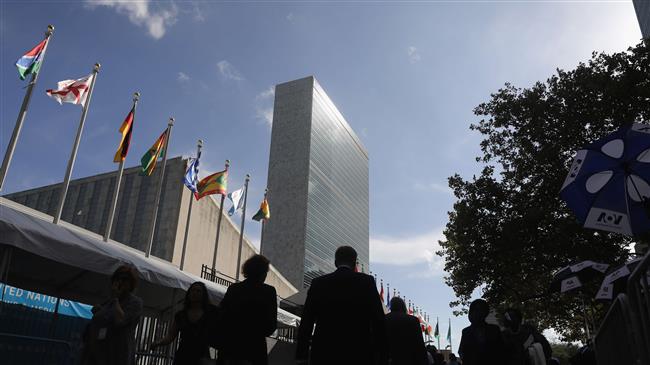President Putin suspends Russia's participation in INF over US ‘violations’
Russian President Vladimir Putin has signed a decree that suspends his country’s participation in the landmark Intermediate-range Nuclear Forces Treaty (INF), a key Cold War-era nuclear arms-control agreement with the United States, over US "violations," the Kremlin says.
According to the text of the decree, posted on the Kremlin’s official website on Monday, the Russian leader suspended the INF until the US stops violating the bilateral treaty, the first of its kind to eliminate an entire class of missiles.
Putin also ordered the Russian Foreign Ministry to inform signatories to the INF of Russia’s move.
Moscow said there were two major complaints. One is that the US’s use of intermediate-range missiles in the development of anti-missile technology clearly means that Washington is deploying and testing INF-banned missiles. The second is the creation of AEGIS Ashore by the US, a ground-based version of the naval system, which can launch Tomahawk cruise missiles in addition to missile interceptors, and hence, violates the treaty.
The decree says, however, that the INF would be revived if Washington “eliminates its earlier violations of its obligations” under the pact. Otherwise it will simply expire and cease to exist.
Last month, Moscow announced that it was withdrawing from the accord after Washington launched the six-month process to leave the pact over purported violations by Russia, which strongly denies and accuses Washington of breaking the accord itself. The US rejects the allegations.
US President Donald Trump said on October 20, 2018 that Washington would withdraw from the INF, which was signed towards the end of the Cold War in 1987 by then American President Ronald Reagan and Soviet leader Mikhail Gorbachev. It came into force in 1988.
Gorbachev said at the time that US decision to ditch the Cold War-era nuclear weapons agreement with Russia could lead to the collapse of the current non-proliferation mechanism.
The treaty banned all land-based missiles with ranges of 310 to 3,420 miles and included missiles carrying both nuclear and conventional warheads. The original ban between Moscow and Washington led to the elimination of 2,692 missiles.
The Cold War-era treaty, which rid Europe of land-based nuclear missiles, has also come into question against a backdrop of renewed tensions between the West and Russia.
Moscow’s relations with the West have remained tense over the Ukrainian crisis, the foreign-sponsored war in Syria and the allegations of Russian interference in the US presidential poll in 2016.
China warns of 'measures' following CIA’s Chinese-language recruitment drive
Official warns of ‘strong, decisive’ response to any adventurism against Iran
Palestine Action wins landmark legal victory against UK crackdown
VIDEO | World-class eye hospital in Iran’s Zahedan draws medical tourists
VIDEO | India voter roll revision sparks fear of voting disenfranchisement in India
VIDEO | South Africa voices support for Cuba amid US sanctions, threats
VIDEO | EU approves 90 billion euros more for Ukraine amid growing economic backlash
Trump calls Herzog ‘disgraceful’ for refusing to pardon Netanyahu


















 This makes it easy to access the Press TV website
This makes it easy to access the Press TV website